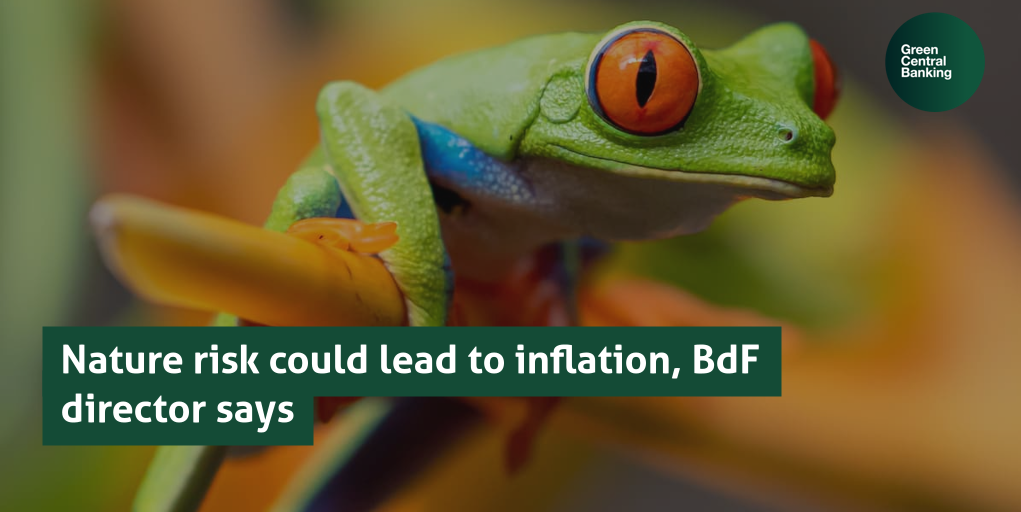Nature risk is just as important as climate risk and business dependency on ecosystems means banks are indirectly exposed, a Banque de France (BdF) director said on a panel at the Nature Finance Forum on 28 April in Paris.
“It was obvious that we had to go one step further in order to look at nature because of the strong nexus between climate change and nature,” said Emmanuelle Assouan, general director of financial stability and operations at BdF and co-chair of the Network for Greening the Financial System (NGFS) taskforce on nature-related risks.
Nature risk could also lead to additional inflation, Assouan said, referencing a soon-to-be-published BdF study. In France, there could be an additional half point increase in inflation just due to degradation of nature and its impact on agricultural prices.
The study supports other research showing that nature, and not just climate, presents an economic risk. A paper from the European Central Bank found that 75% of EU bank loans are critically dependent on at least one ecosystem.
“What is needed in this regard is that financial institutions have a better knowledge of what is in that balance sheet, in order to see what are the impacts they have on nature and what are the risks they have,” Assouan said.
The NGFS, a group of central bankers working on climate risk, is developing a toolbox to address and identify the risks. One of the major challenges is developing macroeconomic models that financial institutions and central banks can use.
“All the models that we have which have been developed so far, [don’t] account enough for the role of nature,” Assouan said.
The NGFS is also working on financing nature and addressing nature risk.
There is a massive funding gap when it comes to not just nature risk, but funding the transition to a green economy. At least US$5-7tn a year is needed to finance the transition, but less than $2tn a year is invested.
While that number might seem daunting, “we know that it is possible, because Banque de France, from a corporate perspective, is investing in nature-oriented solutions”, said Assouan. The French central bank has developed a fund with environmental protection agency CDC Biodiversité and is trying to map the biodiversity footprint of its financial portfolios.
“We have a very long agenda ahead of us, but what we know is that we have to start with something even very simple but very pragmatic, just to advance and take into account all the very important risks that nature poses to our mission and to the financial system.”
This page was last updated May 12, 2025
